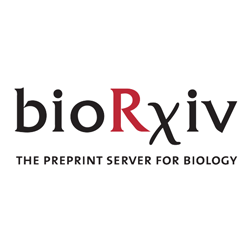
Cornell Marine Mass Mortality Laboratory 🏳️🌈
@IanH77
Followers
687
Following
897
Media
165
Statuses
1K
Marine Biology and Ecology @CornellCALS and @CornellMicroBio PI Ian Hewson (he/him). Not lab: @oceansci_swim
Ithaca, NY
Joined March 2009
Happy Pride from the Florida Keys! As an 🏳️🌈 scientist, I’m proud to be a part of an institution that supports any person, any study. Including marine science! @CornellCALS @CornellMicrobio
1
4
61
Moreover, the conclusions reached in Prentice et al (2025), that it is the cause of all sea star wasting in space and time and across all species is unsupported by both this new analysis and their work which reported only Pycnopodia. Care must be taken to avoid overinterpretation
0
0
0
Interestingly, this strain is found in healthy starfish from Okinawa, Hong Kong, and sea cucumbers in Australia. It is also found in plankton of eastern Australia and NZ. This suggests it has a wide range and broad ecological function.
1
0
0
Some key findings: 1) this bacterium was not intimately associated with wasting starfish during mass mortality in 2013-2014 in any species other than Pycnopodia; 2) in Pisaster ochraceus it does not correspond with wasting in coelomic fluid; and 3) it responds to organic matter
1
0
0
Sea star wasting disease represents a suite of stress responses. Recent work by Prentice et al (2025) identified Vibrio pectenicida FHCF-3 as causing a SSW condition in Pycnopodia helianthoides. I investigated this bacterium’s autecology.
biorxiv.org
Sea star wasting (SSW) has been described globally in over 25 species of asteroids. This condition is characterized by body wall lesions, loss of turgor and ray autotomy, which often results in the...
1
0
0
As part of a newly funded project we are seeking student in marine microbial ecology & urchin disease dynamics 🧫🌊🦠 PhD | Spring/Fall 2026 start Job Ad Here 👉 https://t.co/GWNQ8uPFzj Apply here 👉 https://t.co/gs12zIwz0z... More:
drive.google.com
0
4
10
Lots and lots of traffic today about Sea Star Wasting in Florida. This probably isn’t the same thing as in the Pacific, but speaks to the fact that there is no case definition, and that it’s very non specific and describes when stars fall apart. See https://t.co/Al7ZhImKpp
frontiersin.org
Asteroids (Echinodermata) experience mass mortality events that have the potential to cause dramatic shifts in ecosystem structure. Asteroid wasting describ...
2
1
5
Notice of Award is in! Join our team at NIU to study marine microbial ecology & disease dynamics in sea urchins 🧫🌊🦠 PhD | Spring/Fall 2026 start Job Ad Here 👉 https://t.co/F18J5fD2BJ Apply here 👉 https://t.co/aeKN510pSe More: https://t.co/8R5YAX6R05 cc: @IanH77
theaquaticmicrobiologylab.com
0
11
24
🚨 Looking to mentor a postdoc applicant for the 2026 Walder Foundation Biota Fellowship! Project: microbes, nutrients in the MS River. 💵 $70k–$73.5k/yr 🔬 Aquatic micro, biogeochem, metagenomics? Let’s talk! Info here: https://t.co/z3IFfslJXy
#MicrobialEcology #BiotaFellowship
biotaawards.org
1
18
33
Check out our field sampling update on our lab website, work we continue to do in support of Diadema Scuticociliatosis outbreaks Field Update: USVI Marine Disease Survey https://t.co/ML7VxmhKSe CC @IanH77
theaquaticmicrobiologylab.com
0
2
10
https://t.co/E6gQgaeQaP I was asked to write this based on a town hall at a recent meeting. Apologies but the journal wanted $3200 for open access and I just couldn’t afford. Lmk if you’d like to see it.
aslopubs.onlinelibrary.wiley.com
Click on the article title to read more.
0
3
8
Concluding 2 back to back meetings (ASLO and BEM), what an amazing group of talks and awesome to catch the latest and greatest! Buoys my heart to see so many early career researchers doing amazing things, despite what’s going on. Marine disease research is in good hands.
0
0
6
Final call for anyone attending #aslo2025 who would like to participate on a panel that will discuss best practices in courier shipping. Bring your stories of lost shipments, how you resolved shipping your samples, etc! Dm me if you’re interested in participating!
0
2
2
Fantastic work by Brayan Vilanova Cuevas examining how Diadema scuticociliatosis shapes microbiomes! Also a reminder that proactive surveillance of microbiomes can be valuable if and when diseases occur.
🧵 Exciting Research Alert! 🌊🚨 Our latest study investigates the impact of Diadema antillarum scuticociliatosis (DSc) on the microbiome of sea urchins! Here are some key findings. @IanH77 #MarineScience #Microbiome #SeaUrchins
https://t.co/fsF5udgLkv 1/8
0
2
6
Cornell’s College of Veterinary Medicine is searching for a TT position in aquatic animal health. join us!
0
0
0
Cornell’s College of Veterinary Medicine is searching for multiple TT faculty in Microbiology and Immunology. Come join us!
0
3
5
We also examined its recruitment to corals in aquaria, its potential for reemergence into naive diadema and its presence in coral specimens and the water column prior to the DaSc outbreak. Excellent collaboration between multiple institutions and countries!
0
2
1
Excited to announce the publication of our latest work on the Diadema scuticociliatosis pathogen. Here we examined its presence in environmental reservoirs, finding that it is primarily associated with the coral Siderastrea spp
1
3
4








